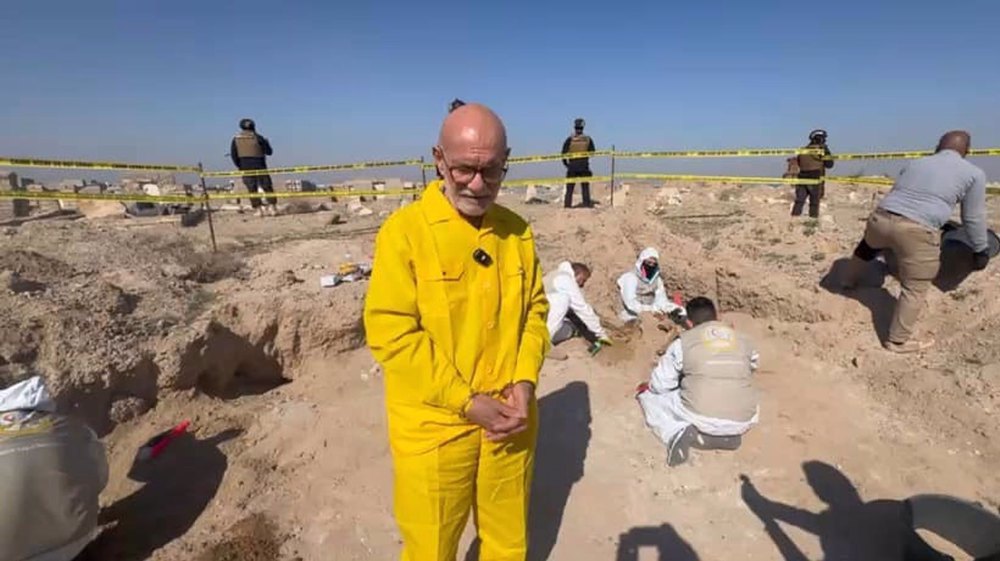Ancient artifacts systematic source of revenue for ISIL: Report
The Takfiri ISIL terrorist group is “systematically” selling off ancient artifacts from Iraq and Syria as a source of revenue, a report says.
According to experts and officials, the Takfiri group earns millions of dollars through selling stolen Syrian and Iraqi national treasures in an organized manner, The Washington Post reported on Monday.
The report said selling Iraqi and Syrian antiques is now a systematic practice by ISIL, which has set up a so-called department of “precious resources.”
“They steal everything that they can sell, and what they can’t sell, they destroy,” said Qais Hussein Rasheed, Iraq’s deputy minister for antiquities and heritage.

According to the Paris-based Financial Action Task Force, an inter-governmental body setting standards for combating money laundering, terrorist financing and other related threats to the integrity of the international financial system, ISIL is in control of 4,500 historical sites in the two countries.
Rasheed, the Iraqi minister, said, “We have noticed that the smuggling of antiquities has greatly increased since last June,” referring to the time when the terrorist group took control of Iraq’s second largest city, Mosul.
“The Iraqi people need to be able to witness their history, their diversity,” Rasheed said, adding, “What’s happening is a tragedy.”
In April, ISIL released a video showing its members destroying artifacts at Iraq’s northern ancient Assyrian city of Nimrud before blowing up a part of the site. Also in February, the terrorists smashed ancient statues at the Ninawa museum in Mosul, using sledgehammers and drills.

Michael Danti, a professor of archaeology at Boston University, referred to the selling of plundered Iraqi and Syrian artifacts, and said, “It’s a dependable source of revenue, which makes it very attractive, and it’s surprisingly untapped.”
“Over time, we’ve seen ISIL and organizations like it increase their ability to draw revenue from these crimes,” he added.
According to Deborah Lehr, the co-founder of the Antiquities Coalition, an organization aiming to end “cultural racketeering,” items from Iraq and Syria are now “flooding the market” and are widely sold online.
“There needs to be better education and better regulation,” Lehr said, adding, “The public needs to know that by purchasing these items, people are potentially funding terrorism.”
ISIL took control of the Syrian ancient city of Palmyra in the central province of Homs in May. The city, which is home to a UNESCO World Heritage site, is feared to be looted by the terrorist group, which has locked down the museum there. The UN cultural agency has warned that ISIL’s demolition of the world heritage site would be an “enormous loss to humanity.”
IA/HSN/HJL
Trump plans to establish 'massive' military base in southern Gaza: Report
NYT questions Trump’s justification for threatening war on Iran
VIDEO | Press TV's news headlines
Araghchi stresses efforts to draft negotiating text between Iran and US
Over 150 ex-diplomats slam French FM's 'disinformation’ about UN’s Albanese
Alawite women abducted and raped, others sold by Jolani's men: Report
Iran, China, Russia hold trilateral talks on Geneva nuclear negotiations
VIDEO | Protests and skepticism greet Trump’s 'Board of Peace'










 This makes it easy to access the Press TV website
This makes it easy to access the Press TV website